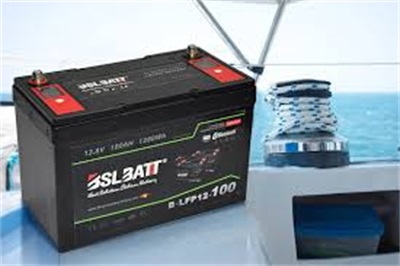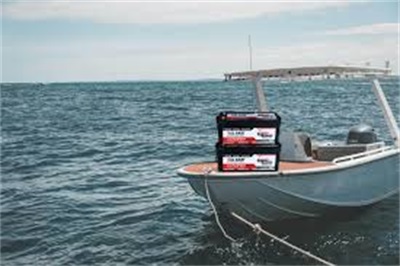Maximizing the Lifespan of Your Marine Lithium Battery Essential Tips
Maximizing the Lifespan of Your Marine Lithium Battery: Essential Tips
Understanding Marine Lithium Batteries

Marine lithium batteries are known for their lightweight and high energy density, making them a popular choice for boaters seeking reliable power. Unlike traditional lead-acid batteries, lithium batteries offer longer cycles and faster charging times, significantly enhancing the on-water experience. However, extending the life of marine lithium batteries requires proper care and maintenance to fulfill their potential.
Charge with Care
Charging your marine lithium battery correctly is crucial for longevity. Always use a charger specifically designed for lithium batteries to avoid overcharging, which can damage the cells. Ideally, charge your battery after each use to keep it topped off—this practice helps maintain optimal battery health and ensures your power source is ready for your next adventure.
Monitor Discharge Levels
_看图王.jpg)
Regularly monitoring the depth of discharge (DoD) is key to prolonging the life of lithium batteries. Ideally, you should aim to discharge your battery to no more than 20% of its capacity. Deeper discharges can reduce the battery's lifespan and efficiency. Investing in a battery management system (BMS) can help keep tabs on your battery’s health and manage its charge and discharge cycles efficiently.
Avoid Extreme Temperatures
Temperature plays a significant role in battery performance and lifespan. Lithium batteries perform best in moderate temperatures, ideally between 32°F and 77°F (0°C to 25°C). Exposure to extreme heat or cold can lead to reduced capacity and accelerated wear. Try to store your marine lithium battery in a climate-controlled environment when not in use, and be cautious of operating it in extreme conditions.
Regular Maintenance Checks
Just like any piece of equipment, your marine lithium battery needs regular maintenance to ensure it lasts as long as possible. Periodically inspect terminals for corrosion, check connections for tightness, and ensure that cables are in good condition. Keeping the terminals clean and free from grime can significantly enhance the efficiency and longevity of your battery.
Invest in Quality Batteries
Not all lithium batteries are created equal. When purchasing, opt for reputable brands known for their reliability and customer support. High-quality batteries often come with solid warranties, indicating their confidence in product longevity. Additionally, reliable batteries tend to use superior materials that can withstand the rigors of marine environments.
Utilize Solar Charging
For those who spend a lot of time on the water, integrating solar panels can be a game-changer for maintaining battery health. Solar chargers can continuously trickle charge your marine lithium battery, keeping it at optimal levels without the risk of overcharging. This eco-friendly method is not only sustainable but can also save you from battery-related worries during long trips.
Conclusion
By following these essential tips, you can significantly extend the lifespan of your marine lithium battery, ensuring many enjoyable days on the water. Proper charging practices, regular monitoring, maintaining optimal temperature conditions, and performing routine checks are all critical to maximizing your battery's efficiency. Embrace these practices, and your marine adventures will continue smoothly, powered by your reliable lithium battery.

